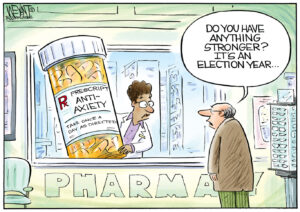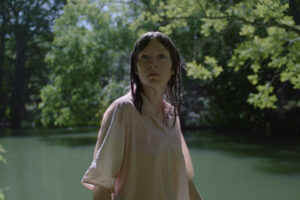‘Modern Life Is Not Good for Mental Health’
Our forebears were less depressed and anxious than we are today, sociologist Jean Twenge concludes after studying the frequency of symptoms associated with these conditions. Keoni Cabral / CC-BY-2.0
Keoni Cabral / CC-BY-2.0
Our forebears were less depressed and anxious than we are today, sociologist Jean Twenge concludes after studying the frequency of symptoms associated with these conditions.
Twenge is the author of “Generation Me: Why Today’s Young Americans Are More Confident, Assertive, Entitled—and More Miserable Than Ever Before.”
Guardian contributor Jean Hannah Edelstein writes about Twenge’s book and the mental condition of Westerners today:
I’m not afraid to write about my depression, but that’s in large part because I know that it’s unlikely that my admission of illness will affect my ability to make a living in the profession that I’ve chosen. This is an exception. Too many Americans – young ones, in particular – have too little access to good mental health treatment, whether because their health insurance does not adequately cover it, they can’t take time off work to seek it, or they feel ashamed or embarrassed to seek intervention. If modern life is unkind to our mental health, it’s no doubt in part because so many young people fear that admission of vulnerability will affect their employment, or their relationships, at a time when their futures are already far less clear than those of their parents.
Twenge theorizes that demographic shifts toward people leading more independent, less family-oriented lives has led to the upswing in unhappiness. I don’t want to give up the freedom that we’ve gained – in particular, since I am a woman, a retrograde movement towards traditional roles and expectations would make me very grumpy – but it does seem a shame that our freedom to talk about our feelings, and show real empathy to other people when they share theirs, has not kept pace with other kinds of forward thinking. I don’t think that you have to live in a single dwelling with your parents and grandparents to feel companionship and love, but it is emotionally exhausting to operate in a social milieu where we project the best sides of our lives through social media, but revile real vulnerability. There’s a dark space between the ever-mounting expectations of the everlasting American dream – to be better, to have more – and the actual truth: life is always a bit disappointing. Perhaps our ancestors were less burdened by disappointment because they weren’t socialized to expect as much. …
Our current preoccupations with “money, fame and image” are likely to be contributing to our sense of malaise, according to Twenge. I’d argue, furthermore, that these preoccupations are preventing people from seeking support, as if nothing could be more the opposite of these things than admission of the need for help. Too often, media narratives of depression and anxiety make me feel worse, because they are shaped into tales of money, fame and image: I was depressed, I got treatment, now I’m better and happy and successful. I understand why these stories take those shapes: there’s a strong temptation to discharge the illness by writing it out as if it has an end. Sometimes it does. For many people it doesn’t, and I fall into the latter category: OK to have reached a state of peaceful coexistence with my illness, rather than a cure. That’s what really makes me feel less anxious.
Continue reading here.
—Posted by Alexander Reed Kelly.
Your support matters…Independent journalism is under threat and overshadowed by heavily funded mainstream media.
You can help level the playing field. Become a member.
Your tax-deductible contribution keeps us digging beneath the headlines to give you thought-provoking, investigative reporting and analysis that unearths what's really happening- without compromise.
Give today to support our courageous, independent journalists.






You need to be a supporter to comment.
There are currently no responses to this article.
Be the first to respond.